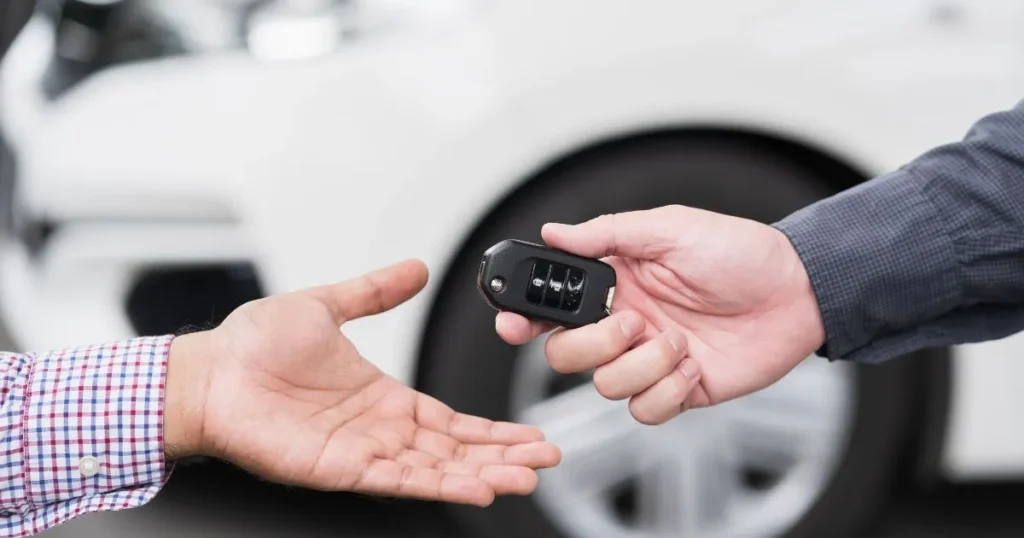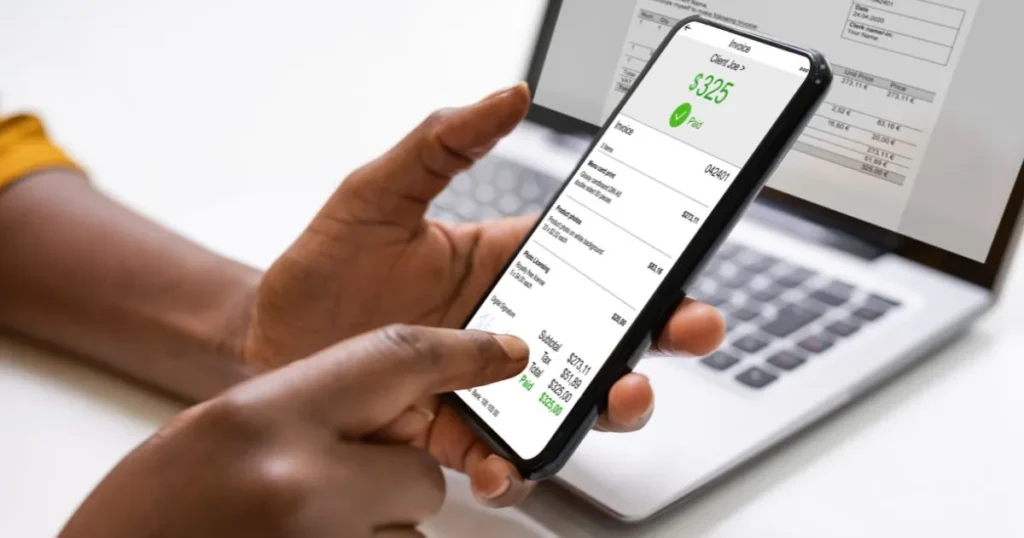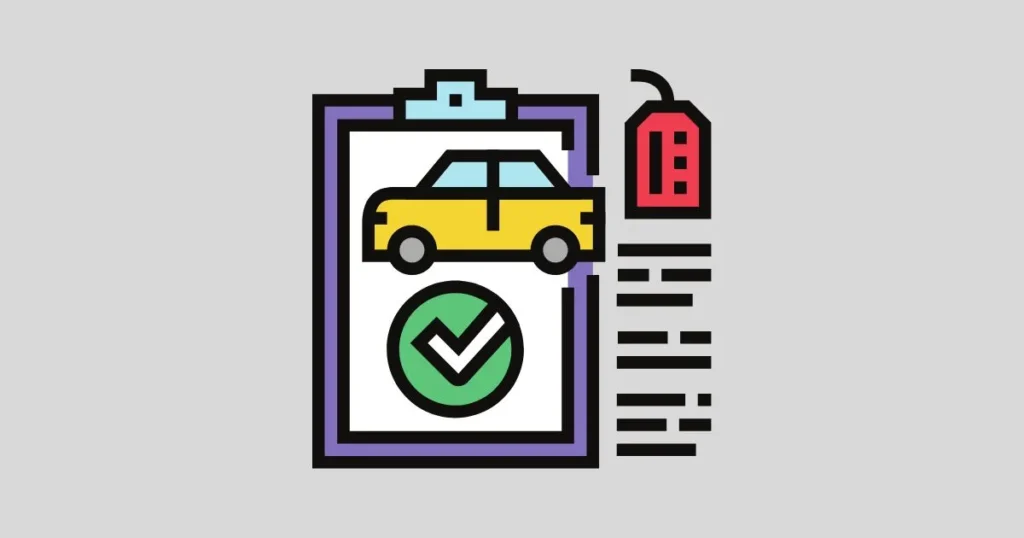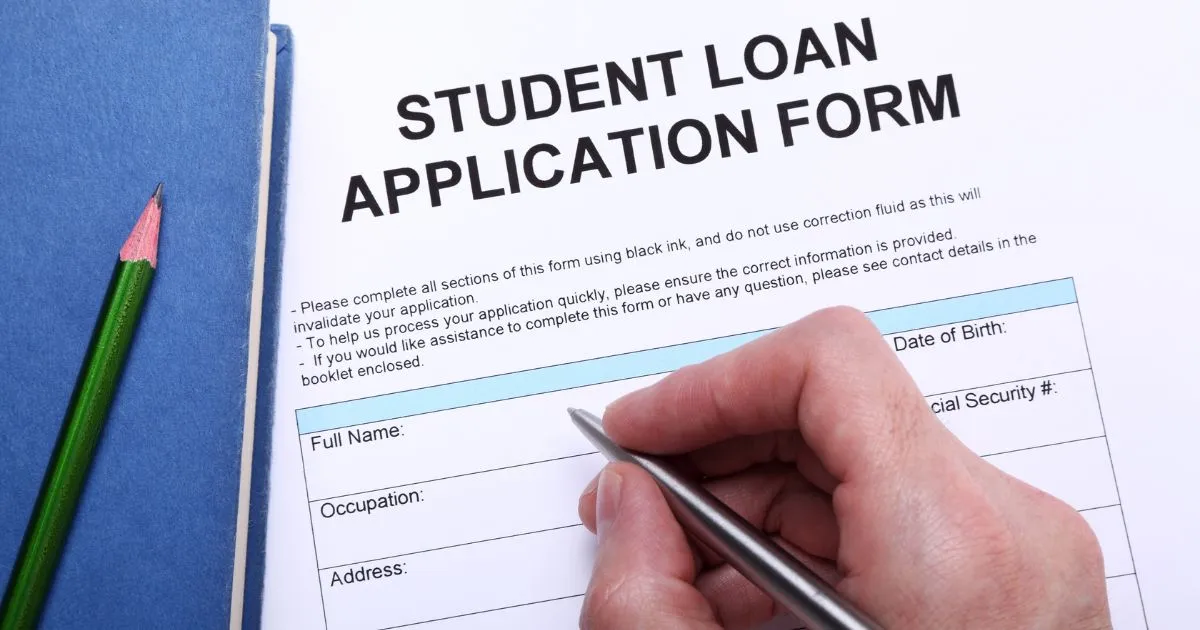Buying a car can be an exciting and overwhelming experience. It is a big investment and you want to make sure that you are getting the best deal possible.
However, with the rise of online marketplaces and private sellers, it has become easier for scammers to target unsuspecting buyers. In this article, we will discuss some red flags or signs that may indicate a scam when buying a car.

Red Flag #1: Unbelievably Low Price
One of the most common signs of a scam when buying a car is an unbelievably low price. If you come across a listing for a car that is significantly cheaper than similar models on the market, it should raise some red flags. Scammers often use attractive prices to lure in potential buyers and then disappear once they receive payment.
To avoid falling for this scam, do your research and compare prices of similar cars in the market. If a deal seems too good to be true, it probably is.
Related post: Which credit utilization rate would be preferable to a lender on a credit card application?
Red Flag #2: Seller is Not Willing to Meet in Person
Another red flag when buying a car is if the seller refuses to meet in person or insists on only communicating through email. Scammers often use this tactic to avoid being caught or identified. They may claim that they are out of town, busy with work, or have a medical emergency as an excuse.
Always make sure to meet the seller in person and inspect the car before making any payments. If the seller is not willing to meet, it is best to walk away from the deal.
Red Flag #3: Asking for Payment Before Seeing the Car
If a seller asks for payment before you have even seen the car, it is a major red flag. Scammers often use this tactic to get money upfront and then disappear without delivering the car. They may claim that they need the money urgently or that there are other interested buyers lined up.

Never make any payments before inspecting the car and verifying all necessary documents. If a seller insists on receiving payment first, it is best to walk away from the deal.
Red Flag #4: Pressure to Complete the Transaction Quickly
Scammers often use pressure tactics to rush buyers into making a quick decision. They may claim that they have multiple interested buyers or that the price is only valid for a limited time. This sense of urgency can make buyers overlook red flags and make impulsive decisions.
Take your time when buying a car and thoroughly inspect all aspects of the deal before making any payments. If a seller is pressuring you to complete the transaction quickly, it is best to walk away from the deal.
Red Flag #5: Seller Refuses to Provide Vehicle History or VIN Number

A legitimate seller will always be willing to provide a vehicle history report and the VIN (Vehicle Identification Number) of the car. If a seller refuses to do so, it could be a sign that they are trying to hide something about the car’s past.
Before purchasing a car, make sure to obtain and review the vehicle history report and verify the VIN number with a trusted source. If the seller is unwilling to provide this information, it is best to walk away from the deal.
Red Flag #6: Unprofessional or Inconsistent Communication
When communicating with a seller, pay attention to their language and writing style. Scammers often use poor grammar, spelling errors, and inconsistent communication as a way to disguise their identity. They may also use generic or automated responses.
If you notice any of these signs, it is best to be cautious and do more research before proceeding with the deal.
Red Flag #7: No Test Drive Allowed
A test drive is an essential part of buying a car. If a seller refuses to allow you to test drive the car, it is a major red flag. Scammers may claim that the car is in perfect condition and there is no need for a test drive, but this is often not the case.

Always insist on test driving the car before making any payments. If a seller denies your request, it is best to walk away from the deal.
Red Flag #8: Sketchy or Suspicious Payment Methods
Be wary of sellers who only accept cash or wire transfers as a form of payment. These methods are difficult to trace and offer no protection in case of a scam. Scammers may also ask for unusual forms of payment, such as gift cards or cryptocurrency.
It is best to use secure and traceable payment methods such as credit cards or online transfers when buying a car. If a seller insists on using sketchy payment methods, it is best to walk away from the deal.
Red Flag #9: Unusual Location or Shipping Requests
If a seller asks you to meet in an unusual location or insists on shipping the car to you, it is a major red flag. Scammers often use this tactic to avoid meeting in person and to make it difficult for buyers to inspect the car.
Always meet the seller in a public place and never agree to have the car shipped without thoroughly verifying all details. If a seller is unwilling to meet or insists on shipping, it is best to walk away from the deal.
Red Flag #10: No Title or Registration Papers Available
Before purchasing a car, always make sure to check and verify the title and registration papers. If a seller is unable to provide these documents, it could be a sign of a scam. They may claim that they have lost the papers or that there is an issue with transferring ownership.
Never purchase a car without proper title and registration documents. If a seller is unable to provide them, it is best to walk away from the deal.
Additional Tips to Avoid Car Buying Scams
Apart from being aware of these red flags, there are a few other tips you can follow to avoid falling for car buying scams:
- Always do your research and compare prices before making a purchase
- Inspect the car thoroughly and ask for maintenance records
- Verify all details such as VIN number, title, and registration papers
- Trust your gut instinct – if a deal seems too good to be true or something feels off, it is best to walk away
- If possible, bring along a mechanic or someone knowledgeable about cars to help you with the inspection process.
Conclusion
Buying a car is a significant investment, and it is essential to be cautious and aware of potential scams. By being vigilant of red flags and following these tips, you can protect yourself from falling prey to car buying scams. Always remember that if a deal seems too good to be true, it probably is.





